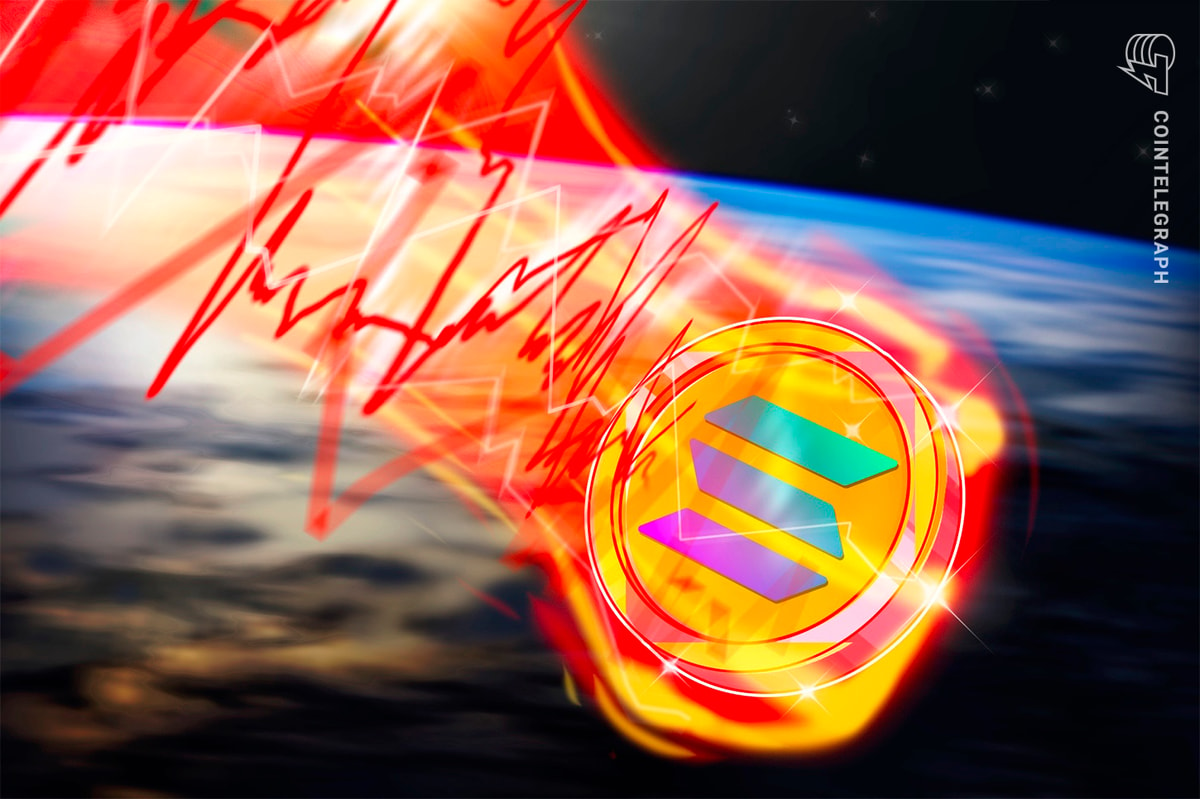3 reasons why Solana (SOL) price is down this week

Solana's native token, SOL (SOL), experienced a 9% decline on Jan. 18, reaching a $91.40 low. The continuous rejection from the $100 level has persisted over the past 15 days. However, this should not be of extreme concern, considering that the total cryptocurrency market capitalization has been unable to sustain levels above $1.6 trillion throughout 2024. Despite the recent setback, SOL recorded an impressive 84% gain in December, causing investors to express concerns about the lack of positive price momentum.
FOMO for Solana SPL token listings and airdrops fades
The FOMO (fear of missing out) driving SOL's rally in December 2023 was triggered by the pump of Solana SPL token airdrops, which included Jito (JTO), BONK, and Dogwifhat (WIF). This movement stimulated demand for the Solana Saga Phone, as some projects targeted exclusive offers for these users. However, the tide appears to have turned, as BONK faced a 15% correction between Jan. 17 and Jan. 18, while JTO declined by 19% in the same period.
Another factor contributing to SOL's recent correction was the excessive optimism caused by airdrop expectations. Some launches took longer than anticipated, while others provided only a temporary short-term boost to its decentralized applications (DApps), fading after the respective airdrop snapshots. Analysts and influencers created lists of the most promising opportunities, but almost none of the tokens reached decent valuations and volumes.
In a post on X social network dated Dec. 12, 2023, ‘IcedKnife' mentioned some of the expected Solana ecosystem launches, including Kamino, Drift, Tensor, Jupiter, Parcl, Marginfi, and many others.
gentle reminder to farm all these protocols
DriftKaminoTensor WormholeJupiter (second wave)marginfi parcl Mayan meteora Cega zeta Phantom BirdeyeBackpackCube
— Iced (@IcedKnife) December 12, 2023
A significant source of optimism for SOL's token performance stems from the growth in deposits within the Solana Network's decentralized finance (DeFi) industry.
The total value locked (TVL), measured in SOL tokens, reached a peak of 15.4 million on Dec. 19, 2023, indicating a 60% growth compared to the previous month. However, it has since stabilized near 14 million. In addition to the TVL growth in Jito and Marinade Finance liquid staking solutions, Kamino, Orca, and Solend DeFi applications also managed to exceed $150 million in deposits each.
Furthermore, there has been undeniable growth in the activity of the Solana network in terms of transactions and volumes, although its numbers still lag behind competitors like BNB Chain and Polygon.

Note that Solana witnessed an 8.5% decline in transactions and the number of active DApps users in the last 7 days. However, Solana's DApps volume in the period, totaling $594 million, is significantly smaller compared to BNB Chain's $6 billion or Polygon's $1.6 billion. On the positive side, Solana leads with an absolute number of transactions at 72.3 million, which can be partially attributed to its lower costs.
Solana’s network robustness paves the way for a SOL price recovery
Solana's heavy reliance on heavy-processing validation has attracted substantial criticism for the project. Nonetheless, it has simultaneously presented a unique opportunity for DApps requiring extensive bandwidth, such as token launches, NFT collections, games, and social networks. As an example, the Solana network became the third-largest network in NFT marketplace volumes, according to CryptoSlam.

NFT volumes on Solana reached $270.5 million, trailing Ethereum by a mere 20%, with Ethereum dominating in terms of the most valued collection. Notable among Solana's most traded NFTs are Saga Monkes, Froganas, Mad Lads, and Tensorians.
Solana's network activity does not indicate a risk of a sharp SOL price correction, considering its resilience in terms of DApps volumes and TVL. However, there is negative pressure on SOL token demand following excessive expectations related to airdrops and SPL token performances.
SOL's market capitalization stands at $40.6 billion with a price of $94, remaining 50% lower than its peak in November 2021.
Consequently, there is potential for an upside if the network continues to attract interest from projects that value its stability in the face of excessive network processing demand. This is especially significant as most competitors have experienced surges in transaction fees or prolonged instability.
This article does not contain investment advice or recommendations. Every investment and trading move involves risk, and readers should conduct their own research when making a decision.




Comments are closed.